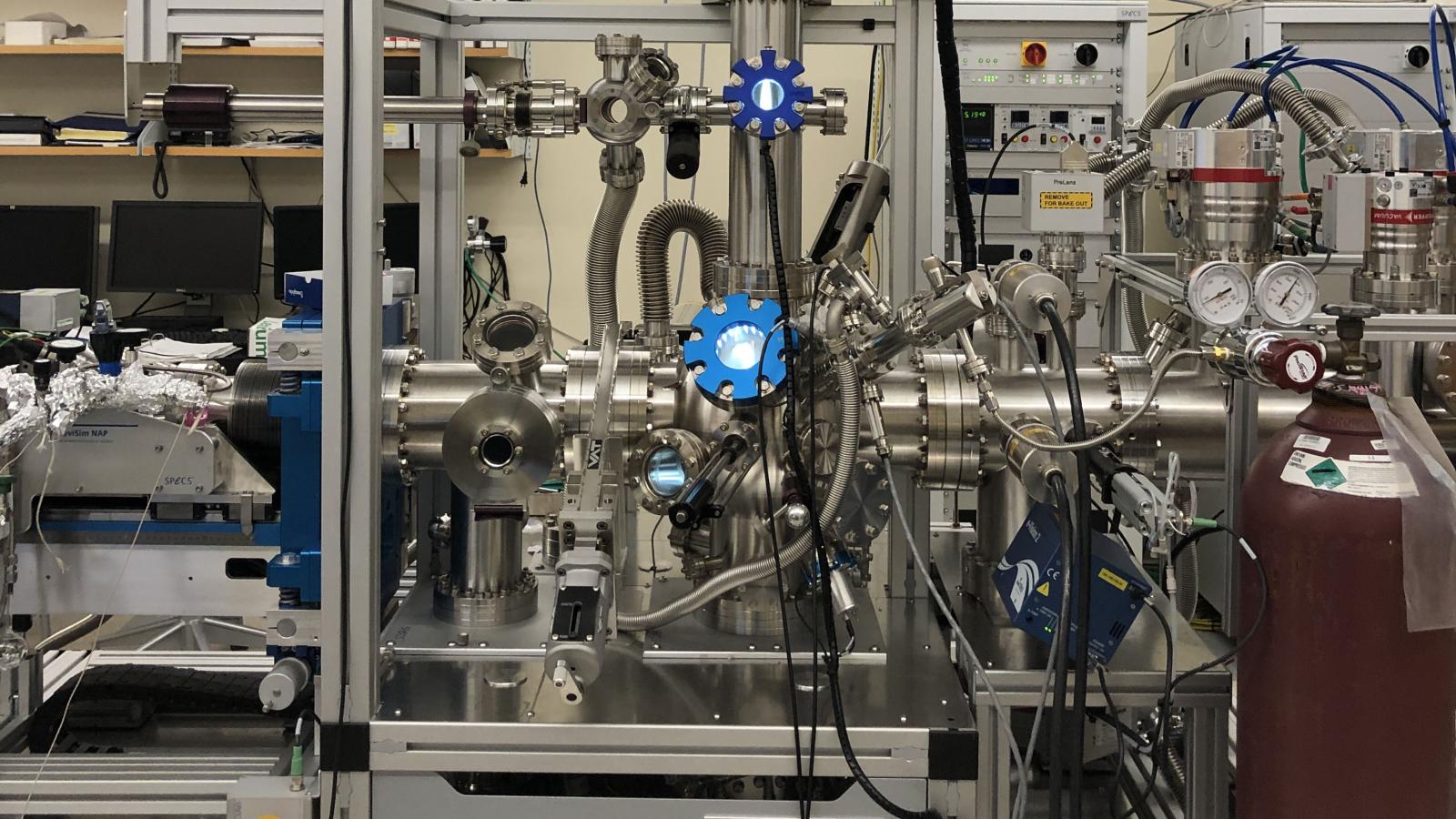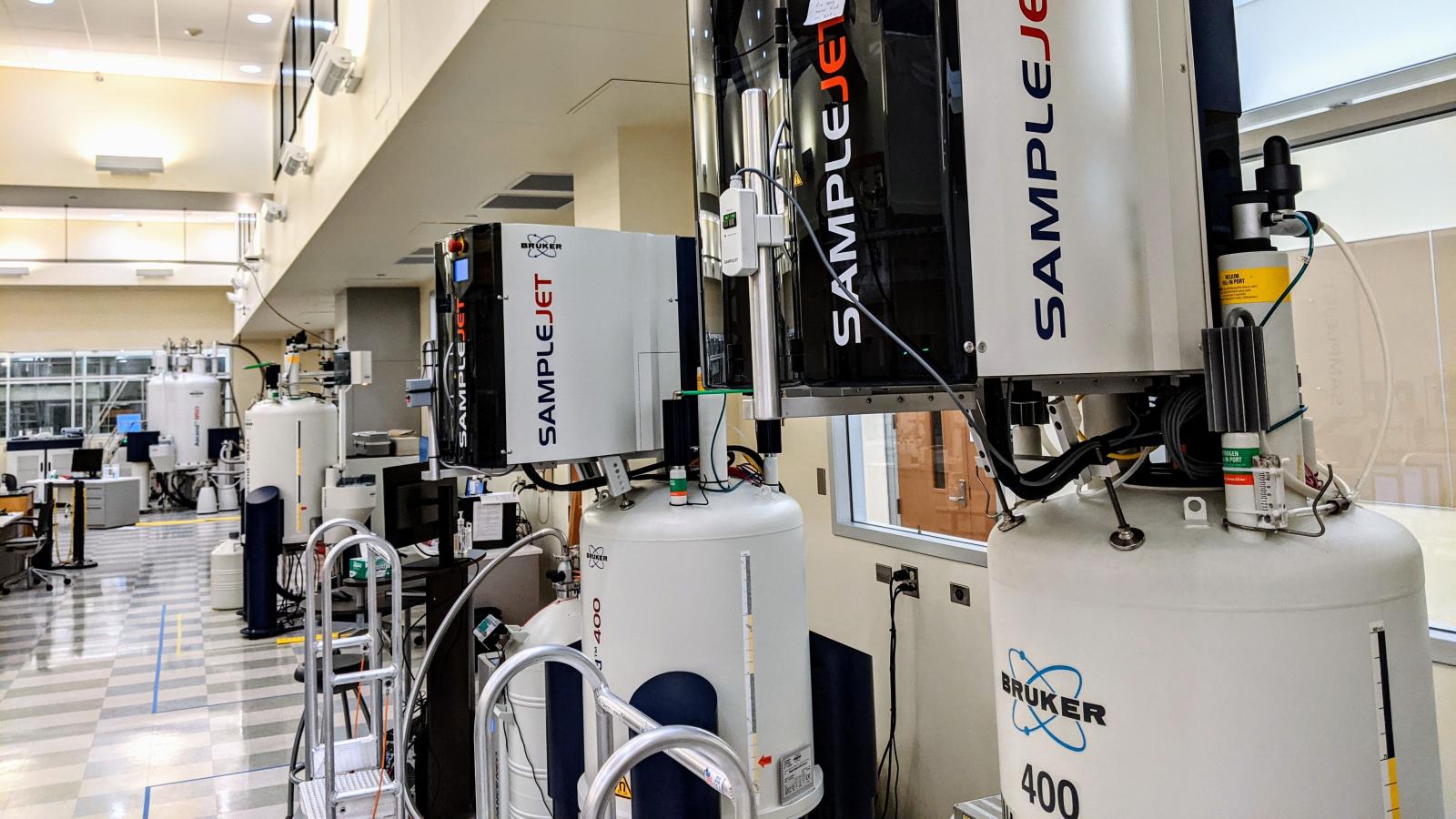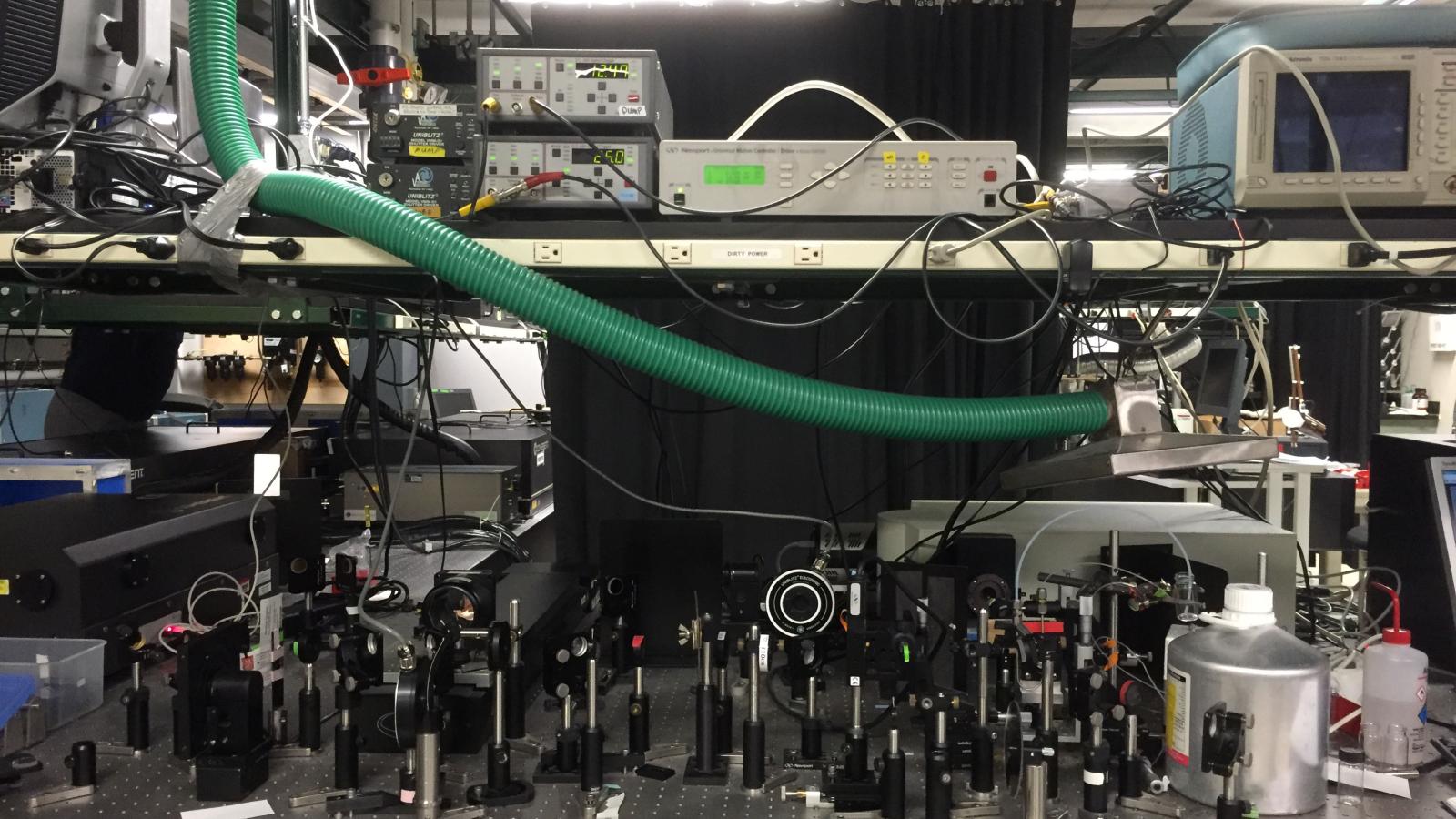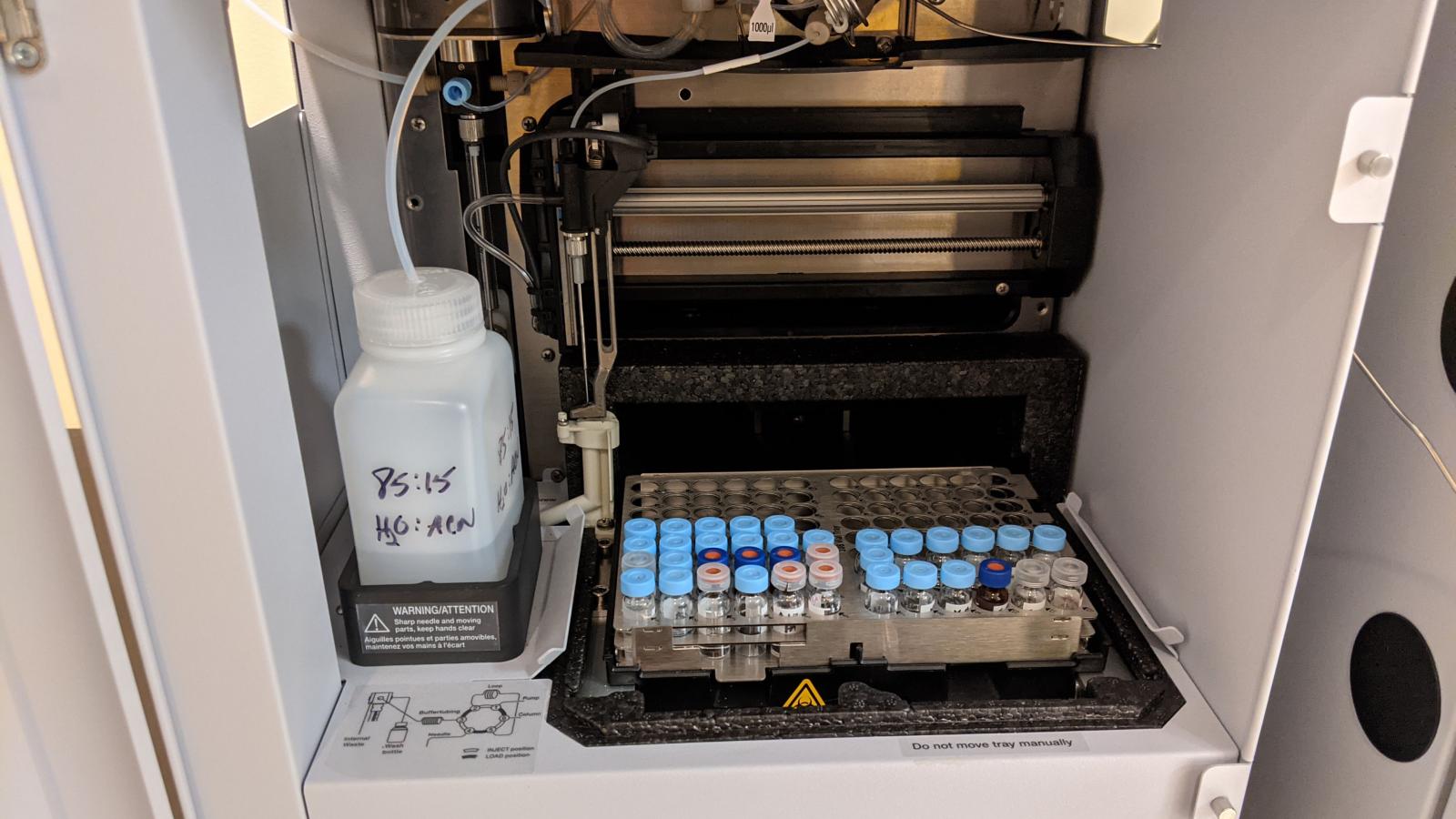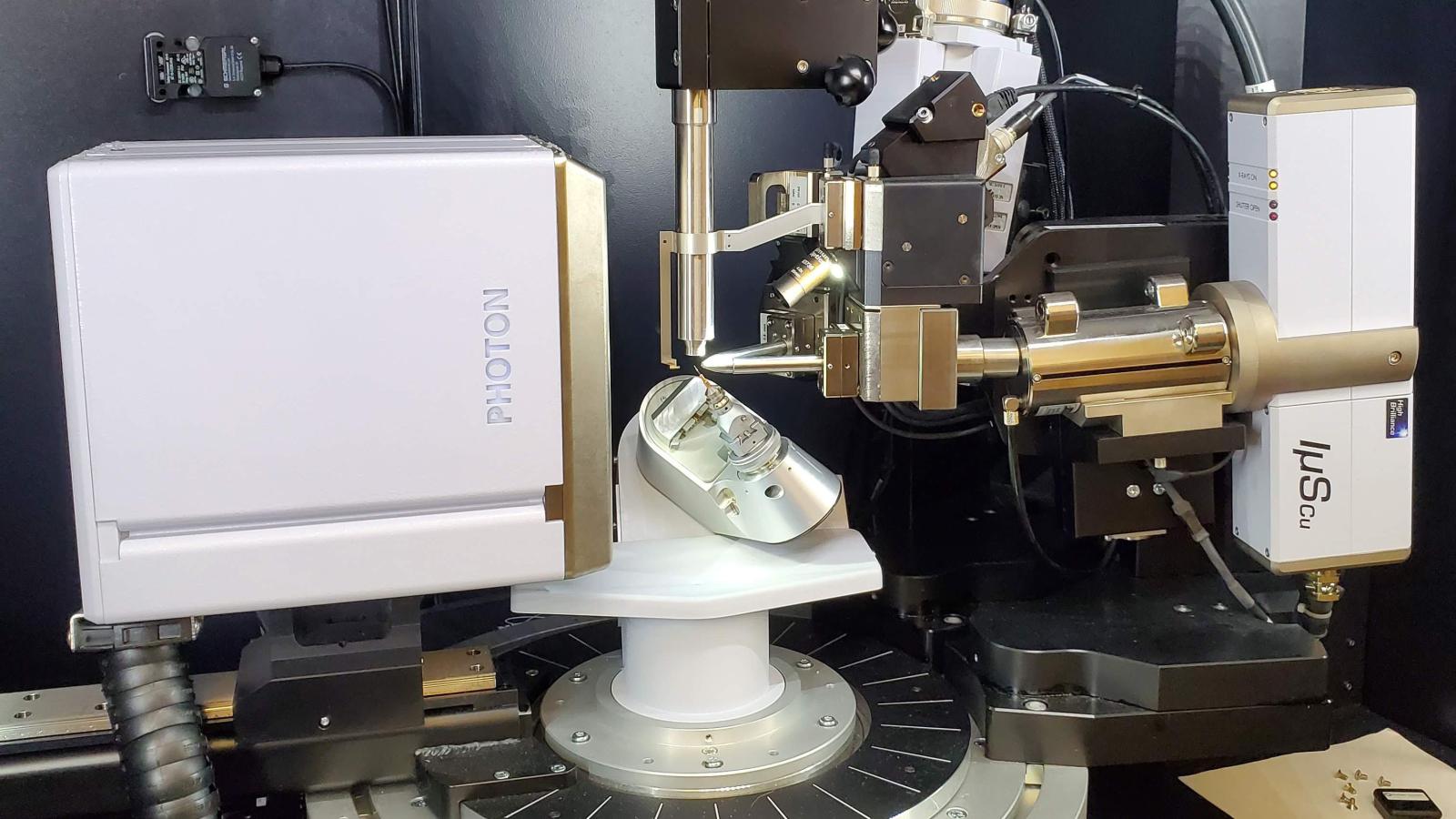Research Facilities
The Department of Chemistry and Biochemistry teaching and research missions are supported by several core facilities – the Research Support Services (RSS). These facilities are available to all departmental researchers including graduate students, post-docs, research associates, and undergraduates.
These facilities provide centralized care of, and training on, a variety of instruments for use by the graduate research program. Department researchers may request training in order to access resources which are not available in their own labs due to cost or infrequent usage. The RSS scientists and engineers are intimately involved in the research and teaching efforts through consultation, collaboration and training. Routine accomplishments include publishing articles in peer-reviewed journals, offering courses in their discipline, and designing new techniques.
For more information or any questions about accessing the RSS resources - please see the links for each facility and/or contact:
Dr. Tanya Whitmer, Director of Research Support Services for questions about analysis and instrumentation or
Dr. Gerry Raimann, Director of Administration for questions about the production shops.
Exciting New Facilities
We would like to announce two new very unique research facilities funded recently by the National Science Foundation.
The NeXUS System is under development now. It is planned to be a first-of-its-kind combination of a laser driving the generation of extreme ultraviolet (XUV) and soft x-ray pulses with durations from femtoseconds to attoseconds.
The new NSF-funded National Gateway Ultrahigh Field NMR Center is to promote and advance cutting-edge science using ultrahigh magnetic fields with focus on the areas of biomolecules and metabolomics by solution and solid-state NMR and materials science. The centerpiece is a new 1.2 GHz NMR spectrometer with existing shared CCIC high-field NMR systems serving as “staging instruments”. Users from Academia, National Research Labs and Industry are supported by expert research scientists at the Center. The Center will also coordinate a diverse range of educational and outreach activities.
Research Support Services

